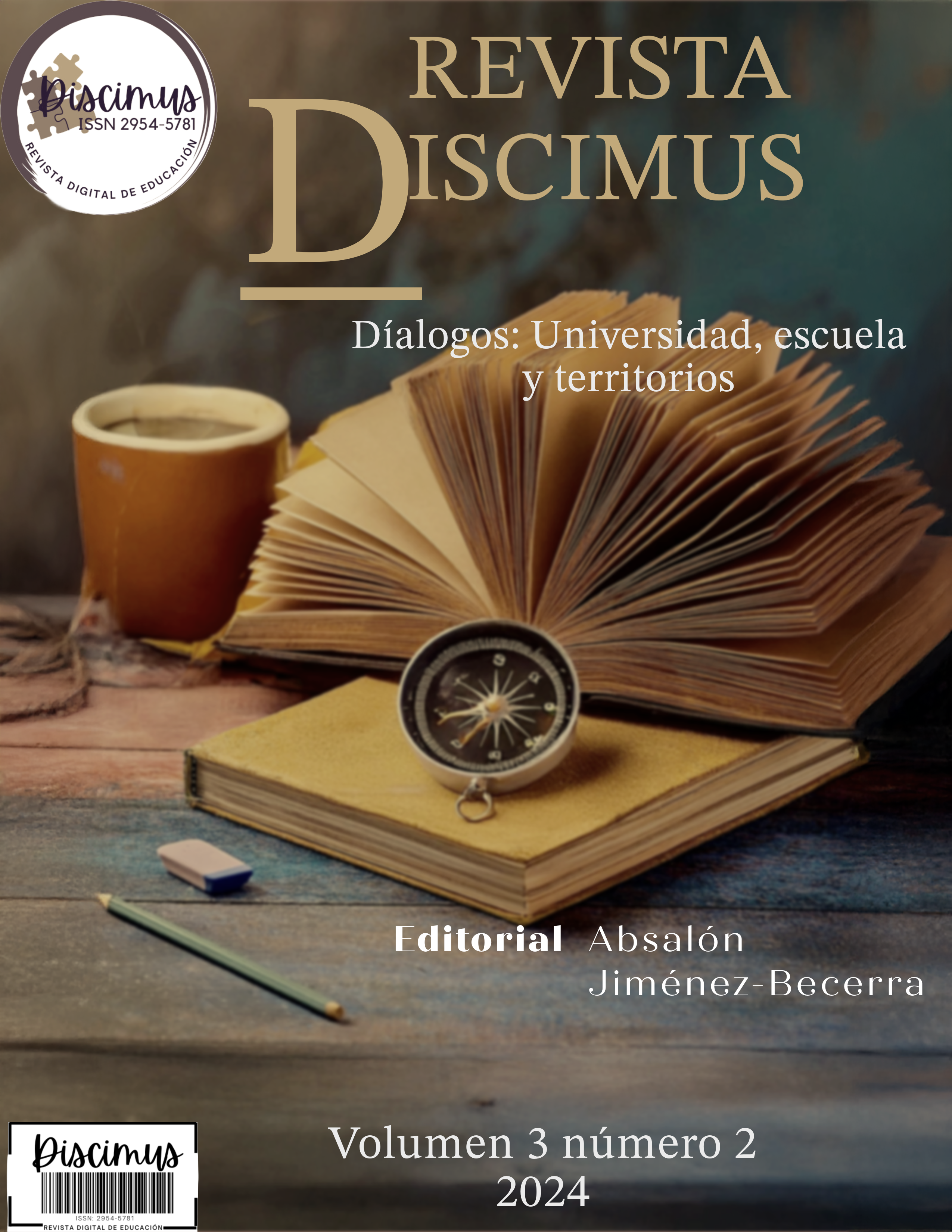Intercultural Communicative Competence: challenges from formative and authentic evaluation
Conteúdo do artigo principal
Resumo
The concept of evaluation, in the educational context, has evolved throughout history and different generations have given it various functions - from a positivist approach to a constructive and participatory approach-. Therefore, it is important to reflect on the need for an evaluation that adapts to the changes of the contemporary society and promotes inclusivity, equity and students’ learning and that is also positioned in a reflection-action-reflection approach. Regarding foreign language teaching, intercultural communicative competence should be approached through a formative and authentic evaluation to better assess students’ performance.
##plugins.themes.bootstrap3.displayStats.downloads##
Detalhes do artigo
Seção

Este trabalho está licenciado sob uma licença Creative Commons Attribution-NonCommercial-ShareAlike 4.0 International License.
Política de Difusión Libre en la Revista Discimus
La revista Discimus tiene el compromiso de promover la libre circulación del conocimiento científico y académico, garantizando al mismo tiempo el reconocimiento adecuado a nuestros autores y respetando los principios éticos de la publicación científica. Con este objetivo, Discimus publica todos sus artículos bajo la licencia ATRIBUCIÓN-NOCOMERCIAL-COMPARTIRIGUAL 4.0 INTERNACIONAL CC BY-NC-SA 4.0
¿Qué significa esto para los autores, lectores y la comunidad científica?
CC (Creative Commons): Indica que la obra está bajo una licencia Creative Commons, lo que significa que se puede compartir y reutilizar bajo ciertas condiciones especificadas.
Como Citar
Referências
Ahumada, P. (2005). La evaluación auténtica: un sistema para la obtención de evidencias y vivencias de los aprendizajes. Rev. Perspectiva Educacional, Instituto de Educación PUCV, 45, 11–24.
Alcaraz, N. (2015). Aproximación Histórica a la Evaluación Educativa: De la Generación de la Medición a la Generación Ecléctica. Revista Iberoamericana de Evaluación Educativa, 8(1), 11–25. www.rinace.net/riee/
Anijovich, R. (2000). La retroalimentación en la evaluación. In La evaluación significativa (Paidós, pp. 129–149).
Bhawuk, D. Brislin, R.(1992). The measurement of intercultural sensitivity using the concepts of individualism and collectivism. International Journal of intercultural relations.
Bennett, J. M. (2008). Transformative training: Designing programs for culture learning. In Contemporary leadership and intercultural competence: understanding and utilizing cultural diversity to build successful organizations (SAGE, pp. 95–110).
Borgetti, C. (2017). Is there really a need for assessing intercultural competence? Some ethical issues. Journal of Intercultural Communication.
Byram, Michael. (1997). Teaching and assessing intercultural communicative competence. Multilingual Matters
Chen, G.-M., & Starosta, W. J. (2000). The Development and Validation of the Intercultural Sensitivity The Development and Validation of the Intercultural Sensitivity Scale Scale. Human Communication, 3, 1–15. https://digitalcommons.uri.edu/com_facpubs
Dervin, F. (2010). Assessing intercultural competence in Language Learning and Teaching: a critical review of current efforts. In New approaches to assessment in higher education (Peter lang, pp. 157–173).
Diaz, F., & Barriga, A. (2002). Constructivismo y evaluación psicoeducativa. In Estrategias docentes para un aprendizaje significativo (McGraw Hill, pp. 395–414).
González, Y. (2019). Comunicación intercultural en la enseñanza de lenguas extranjeras (Peter Lang).
Hammer, M. Bennet, M. (1998). The intercultural development inventory (IDI) manual. Portland, OR: intercultural communication institute.
Hammer, M. Bennett, M. Wiseman, R. (2003). Measuring intercultural sensitivity: the intercultural development inventory. International Journal of intercultural relations.
Hammer, M, Gudykunst, W, Wiseman, R. (1978). Dimensions of intercultural effectiveness: an exploratory study”. International Journal of intercultural relations. 21 (1)
Hammer, M. (2011). Additional cross-cultural validity testing of the intercultural development inventory. International Journal of intercultural relations 35 (4).
Kelley, C. Meyers, J. (1995). The cross-cultural adaptability inventory. Minneapolis, MN: National Computer Systems.
Koester, J. Olebe, M. (1988). The behavioral assessment scale for intercultural communication effectiveness. International Journal of intercultural relations. (12)
Ospina, L. (2012). Reflexiones sobre la evaluación del aprendizaje. Universidad del Quindío.
Prieto, M., & Contreras, G. (2008). Las concepciones que orientan las practicas evaluativas. Estudios Pedagógicos , 34(2), 245–262.
Sercu, L. (2010). Assessing intercultural competence: more questions than answers. In Testing the Untestable in Language Education. http://www.multilingual-matters.com,





